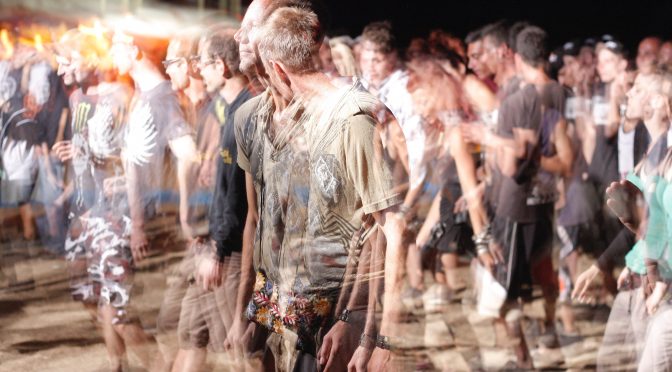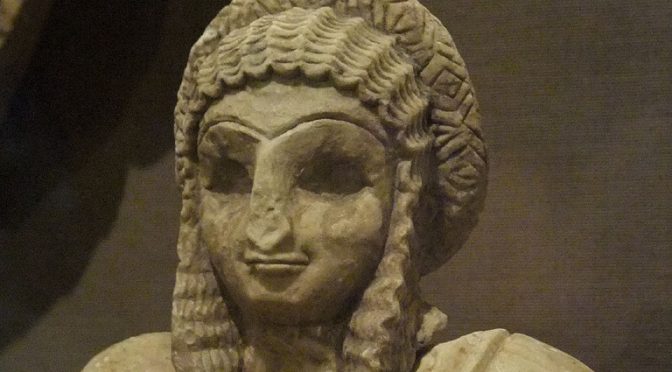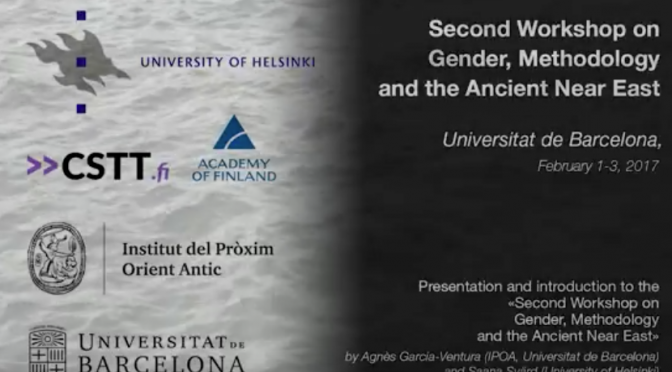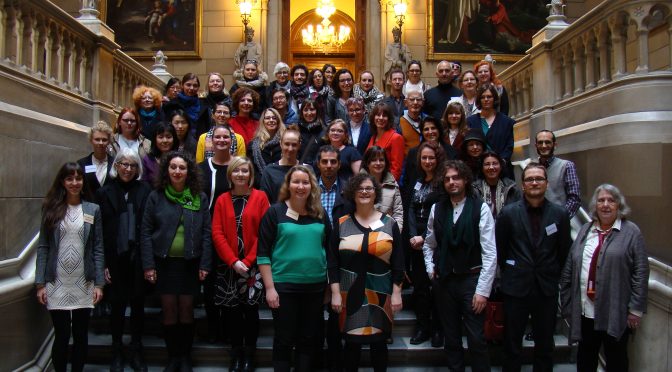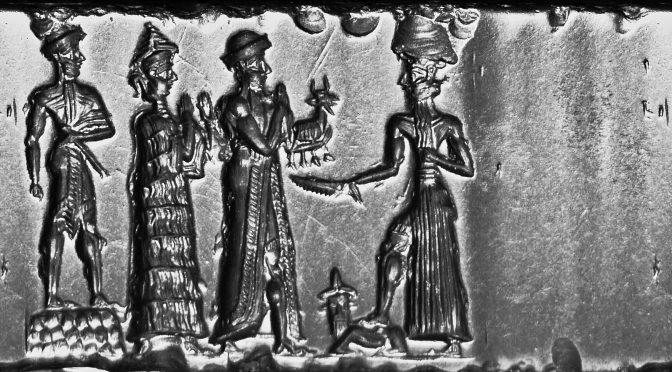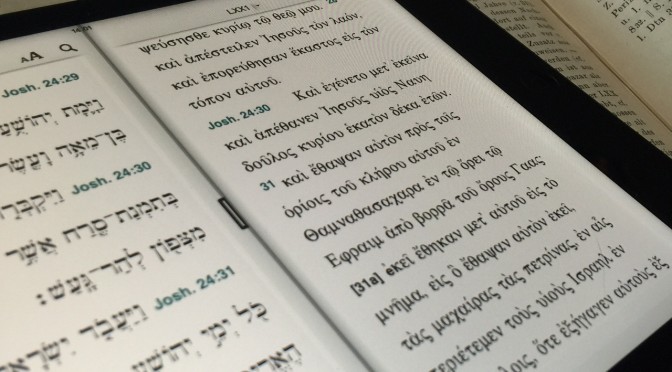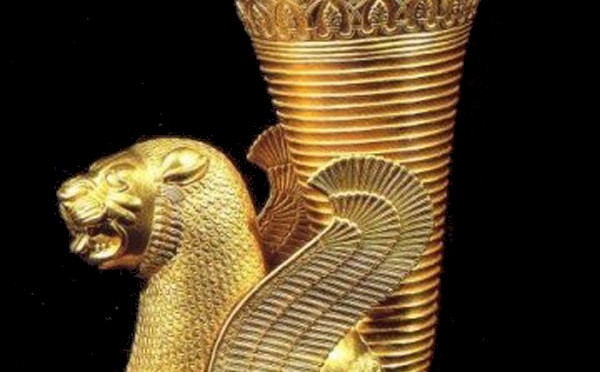From June to August 2017, we have hosted on our website a forum discussion on various aspects related to “gender”. The papers by Saana Svärd and Hanna Tervanotko, Rick Bonnie, Francis Borchardt, and Anneli Aejmelaeus that were posted on our website were originally presented during the last Annual Meeting in May 2018 in Tvärminne, Finland. Continue reading “CSTT and Gender” e-booklet
Tag Archives: Methodology
CSTT and Gender #5: Gender and Methodology in Assyriology
by Saana Svärd
Because of the format of a blog post, I have summarized passages and deleted citations and footnotes. For the full form of the text with appropriate references and bibliography the reader is invited to consult: Saana Svärd: “Studying Gender: A Case Study of Female Administrators in Neo-Assyrian Palaces” In: Brigitte Lion & Cécile Michel (eds.), The Role of Women in Work and Society in the Ancient Near East. Studies in Ancient Near Eastern Records (SANER) 13. Walter de Gruyter, Boston. 2016, pp. 447-458. Continue reading CSTT and Gender #5: Gender and Methodology in Assyriology
Video lectures of 2nd Workshop on Gender, Methodology and the Ancient Near East
The video lectures of the 2nd workshop on Gender, Methodology, and the Ancient Near East, which was held in Barcelona in February 2017 (full program here and a report here), are now online.
The Youtube playlist has the following presentations:
- Welcome to the Second Workshop on Gender, Methodology and the Ancient Near East – Adelina Millet Albà (IPOA, Universitat de Barcelona)
- Presentation and introduction to the Second Workshop on Gender, Methodology and the Ancient Near East Agnès Garcia-Ventura (IPOA, Universitat de Barcelona) & Saana Svärd (University of Helsinki)
- “Dressing the Whore of Babylon for the 21st Century: Sex, Gender and Theory in Mesopotamian Studies” – Ann Guinan (Babylonian Section, University of Pennsylvania, Museum of Archaeology and Anthropology)
- “Queering šà-zi.ga Therapy. Considerations on the Relations between Masculinity, Sickness and Anatomy” – Gioele Zisa (Ludwig-Maximilians-Universität München)
- “Domesticating the Female Body: Ancient Mesopotamian Discourses on Fertility and (Re)production” – M. Erica Couto-Ferreira (Universität Heidelberg)
- “Nefertiti and the ‘Docile Agent'” – Jacquelyn Williamson (George Mason University)
Report on the “Second Workshop on Gender, Methodology and the Ancient Near East”
By Saana Svärd and Agnès Garcia-Ventura
The “Second Workshop on Gender, Methodology and the Ancient Near East” took place in Barcelona February 1-3, 2017. The workshop was hosted by IPOA, the Institute of Ancient Near Eastern Studies of the University of Barcelona (Spain), and organized in cooperation with the Centre of Excellence in “Changes in Sacred Texts and Traditions” (University of Helsinki, Finland). Organizers were Agnès Garcia-Ventura (IPOA, University of Barcelona) and Saana Svärd (University of Helsinki). The workshop was a continuation of the “First Workshop on Gender, Methodology and the Ancient Near East.” The first workshop was organized by the same two scholars at the University of Helsinki in October 2014 and hosted by the Centre of Excellence in “Changes in Sacred Texts and Traditions.”
The aim of both meetings was to discuss different methodological and theoretical approaches to gender within the framework of ancient Near Eastern studies (including archaeology, art history and text studies) and to enable fruitful dialogue between these approaches. Moreover, for this second workshop, colleagues from neighboring disciplines were also encouraged to submit proposals, in order to enrich these conversations further. As a result, the second workshop included colleagues from the disciplines of Assyriology, Archaeology, Egyptology, Phoenician and Punic studies, and Biblical studies (see the full program).
The conference lasted three days and featured 33 communications, a poster session where six posters were presented, and a projects panel where nine new and ongoing projects where discussed. The event was well attended and all in all included roughly 90 participants, including speakers and poster presenters. The speakers and poster presenters came from various universities in twelve countries, namely Belgium, Denmark, Finland, France, Germany, Holland, Italy, Japan, Malta, Spain, the United Kingdom, and the United States of America.
The results of such a rich and diverse conference cannot be summed up in a short blog post. Suffice it to say here that the sheer chronological, geographical and methodological scope, as well as the general high quality of papers, promises good things for the future of gender studies within the context of ancient Near Eastern studies.
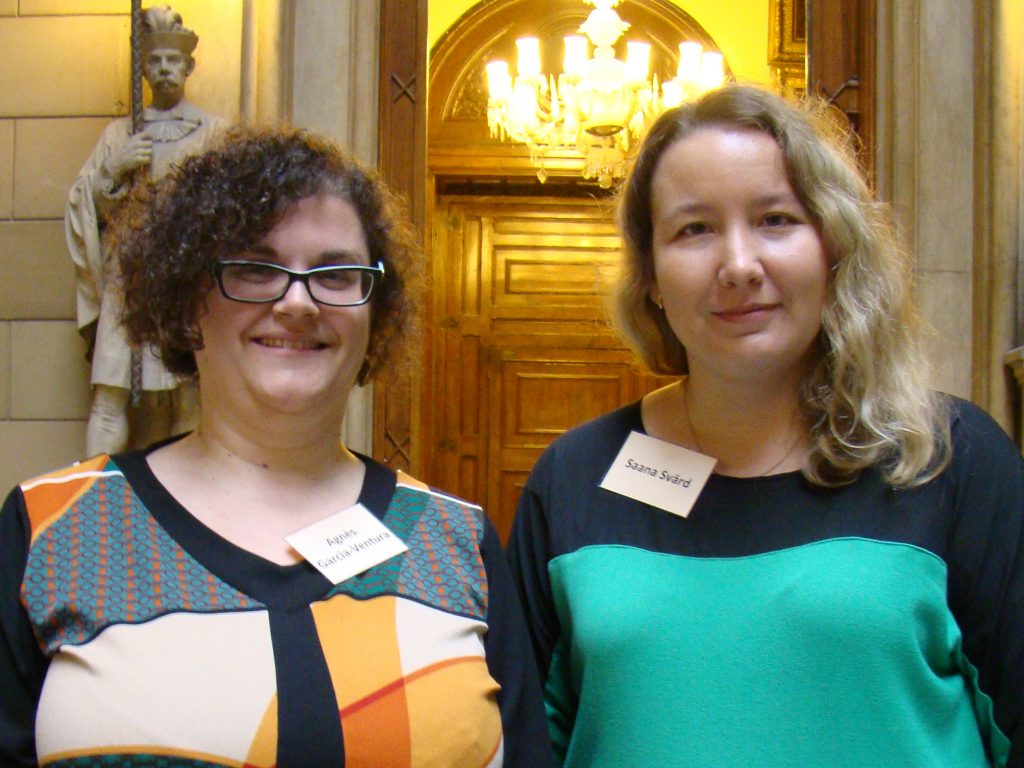
Since both workshops have been well received and the number of participants has increased, the organizers decided to plan a third workshop in the series, hoping the initiative will have continuity as a biannual conference. Thus, the third edition of the meeting, co-organized in cooperation with Professor Katrien De Graef, will be hosted by the University of Ghent (Belgium) in 2019. More information will be published in due time. Please feel free to contact us if you have any questions and/or if you want us to keep you posted on other future ventures related to gender studies and ancient Near Eastern studies we may launch. You may contact us at: agnes.ventura[AT]gmail.com or saana.svard[AT]helsinki.fi.
Programme for 2nd Workshop on Gender, Methodology and the Ancient Near East
We have the pleasure to invite participants to the “Second Workshop on Gender, Methodology, and the Ancient Near East.” The workshop will be held in Barcelona, February 1-3, 2017 and hosted by the IPOA (University of Barcelona) and organized in cooperation with The Centre of Excellence in ‘Changes in Sacred Texts and Traditions’ (University of Helsinki). The aim of the meeting is to discuss different methodological and theoretical approaches to gender within the framework of ancient Near Eastern studies (including archaeology, art history and text studies) and to enable fruitful dialogues between these approaches and between different fields.
The provisional program of the meeting can be seen below. It is free for participation, but registration is needed. If you are planning to join us, please send an email to one or both of us: Dr. Saana Svärd and Dr. Agnès Garcia-Ventura
***************************************************
Second Workshop on Gender, Methodology and the Ancient Near East
Universitat de Barcelona, February 1-3, 2017
Hosts: IPOA, Universitat de Barcelona / Centre of Excellence “Sacred Texts in Change” in the University of Helsinki
Organizers: Agnès Garcia-Ventura (“Sapienza”, Università degli Studi di Roma / IPOA, Universitat de Barcelona) / Saana Svärd (University of Helsinki)
Wednesday February 1st 2017
9.00-9.45: welcome and introduction
9.00-9.15: Welcome: Adelina Millet Albà, director of the IPOA
9.15-9.45: Presentation and introduction to the workshop: Agnès Garcia-Ventura & Saana Svärd, “Studying Gender in the Ancient Near East: An Introduction”
9.45-11.15: panel 1 (Chair: Adelina Millet Albà)
9.45-10.15: Ann Guinan, “Dressing the Whore of Babylon for the 21st Century: Sex, Gender and Theory in Mesopotamian Studies”
10.15-10.45: Gioele Zisa, “Queering šà-zi.ga Therapy. Considerations on the Relations between Masculinity, Sickness and Anatomy”
10.45-11.15: M. Erica Couto-Ferreira: “Domesticating the Female Body: Ancient Mesopotamian Discourses on Fertility and (Re)production”
11.15-11.45: coffee break
11.45-13.45: panel 2 (Chair: Katrien De Graef)
11.45-12.15: Helga Vogel: “Is ‘Harem’ a Useful Category for Describing and Analysing the Living Conditions of ancient Near Eastern Women?”
12.15-12.45: Leire Olabarria: “Kinship and Gender in Dialogue: Approaching Relatedness in ancient Egypt”
12.45-13.15: Jacquelyn Williamson: “Nefertiti and the ‘Docile Agent’”
13.15-13.45: Thais Rocha da Silva: “Gender Studies and Daily Life in ancient Egypt: Theoretical Problems and new Perspectives”
13.45-15.00: lunch break (catered lunch for speakers and poster presenters)
15.00-16.30: panel 3: poster session (Chair: Agnès Garcia-Ventura)
15.00-15.30: presentation of posters (plenary, room 0.1)
15.30-16.30: discussion of posters (individually, with each presenter, room 0.3; the poster room will be also open during breaks on Thursday and Friday).
Confirmed poster presenters (by alphabetical order): Mina Dabbagh, Sara González, HESTIA research group (Ana Delgado, Meritxell Ferrer and Mireia López-Bertran), Elena Martínez Rodríguez, Michèle Meijer, Omar N’Shea, TÀCITA MUTA research group (Cristina Yúfera, Georgina Rabassó and David Muñoz).
16.30-17.00: fruit break (room 0.3)
17.00-19.00: panel 4 (Chair: Jacquelyn Williamson)
17.00-17.30: Katrien De Graef: “A Room of Her Own? On the Origin, Meaning, and Functioning of the Gagûm in Old Babylonian Sippar”
17.30-18.00: Josué J. Justel: “Remarkable Women from Tikunani: The Role of Women in Palatial Administration”
18.00-18.30: Anne-Isabelle Langlois: “The Princess Iltani’s Archives uncovered at Tell al-Rimah (18th century BC)”
18.30-19.00: Laura Cousin / Yoko Watai: “Onomastics of Women in the Neo-Babylonian Period: An Approach from Gender Studies”
Thursday February 2nd 2017
9.30-11.30: panel 5 (Chair: Ann Guinan)
9.30-10.00: Sophus Helle: “The Dynamics of a Three-sex Model”
10.00-10.30: Ilan Peled: “Identifying Gender Ambiguity in Texts and Artifacts”
10.30-11.00: Megan Cifarelli: “Problematizing Masculinity and Militarization at Hasanlu, Iran”
11.00-11.30: Laura B. Mazow: “Of War and Weaving: ‘Swords’ and the Complexities of Archaeological Reconstructions of Gender”
11.30-12.00: coffee break
12.00-14.00: panel 6 (Chair: Josué J. Justel)
12.00-12.30: Jana Matuszak: “Assessing Misogyny in Sumerian Advice Literature, Dialogues, and Diatribes”
12.30-13.00: Frauke Weiershäuser: “Narrating about women, narrating about men”
13.00-13.30: Vanessa Juloux: “Philosophy of action and pragmatic approach: a concrete example with ʿAnatu of Ugarit”
13.30-13.45: group photo
13.45-15.30: lunch break
15.30-17.00: panel 7 (Chair: Frances Pinnock)
15.30-16.00: Stephanie Lynn Budin, “Potent Images: The Nude Female Icon as Locus of Power”
16.00-16.30: Elisa Roßberger: “The gendered body as symbolic artefact. Changes in terracotta production in early second millennium Mesopotamia”
16.30-17.00: Erin Darby: “Sex Symbols: Ritual Production and Performativity in Female Near Eastern Terracottas”
17.00-17.30: fruit break (room 0.3)
17.30-19.00: panel 8 – projects panel (Chair: Saana Svärd)
In this panel some current ongoing (or just launched projects) will be presented. In addition, participants will be encouraged to discuss networking possibilities and development of future projects to promote the study of gender in the ancient Near East. The following projects (provisional list) will be presented:
Beth Alpert Nakhai: “Field Safety: Middle East, North Africa, and the Mediterranean Basin”
Katrien De Graef: “GAND = Gender and Assyriology: New Developments”
Anne Katrine de Hemmer Gudme: “Food and Identity in Biblical Literature”
Amy Gansell: “Introducing a Queen to the Virtual Reality Simulation of Nimrud’s Northwest Palace”
Josué J. Justel & Agnès Garcia-Ventura: “Editing a handbook on women in the ancient Near East in Spanish”
Ilan Peled: “LaOCOST – Law and Order: Cuneiform Online Sustainable Tool”
Stephanie Budin“Women in Antiquity. Real Women across the Ancient World”
20.00 Conference dinner (for speakers and poster presenters, by invitation)
Friday February 3rd 2017
9.30-11.30: panel 9 (Chair: Beth Alpert Nakhai)
9.30-10.00: Anne Katrine de Hemmer Gudme: “Death at the Hand of a Woman: Hospitality and Gender in the Hebrew Bible”
10.00-10.30: Sandra Jacobs: “’The Disposable Wife’ and Her Status in the Hebrew Bible”
10.30-11.00: Federico Dal Bo: “Women are like cattle”. Some Remarks on early Jewish Juridical Vocabulary on Women and Nature
11.00-11.30: Adelina Millet Albà: “Real characters or literary characters? The Matriarchs in the Bible”
11.30-12.00: coffee break
12.00-14.00: panel 10 (Chair: Saana Svärd)
12.00-12.30: Natalie N. May: “Female Scholarship in Mesopotamia?”
12.30-13.00: Sanae Ito: “Female and Male Scribes related to the Queen’s Household in the Assyrian Empire”
13.00-13.30: Frances Pinnock: “Amorite ladies at the Neo-Assyrian Court: building up an image, deconstructing an image, transmitting an image”
13.30-14.00: Amy Gansell: “Introducing a Queen to the Virtual Reality Simulation of Nimrud’s Northwest Palace”
14.00-15.30: lunch break
15.30-16.30: panel 11 (Chair: Stephanie Lynn Budin)
15.30-16.00: Anne-Caroline Rendu Loisel: “Gender, Sense and Sensitivity in Ancient Mesopotamian Rituals”
16.00-16.30: Mónica Palmero Fernández: “Inanna/Ishtar: religion, gender and power in the 3rd millennium B.C., or how to weave interdisciplinarity into the socio-political and socioeconomic analysis of belief”
16.30-17.00: fruit break (room 0.3)
17.00-18.30: panel 12 (Chair: Megan Cifarelli)
17.00-17.30: Beth Alpert Nakhai: “The Women of Jerusalem: Capital City Life in Israel’s Iron Age”
17.30-18.00: Helen Dixon: “Locating Phoenician Women: Space, Gender, and Social Roles in the Iron Age Central Levant”
18.00-18.30: Mireia López-Bertran: “Shrines for women?: Phoenician-Punic sanctuaries as feminine arenas”
18.30-19.00: concluding remarks and farewell
Call for papers: “Second Workshop on Gender, Methodology and the Ancient Near East” (Barcelona, 1-3 Feb 2017)

Organisers: Agnès Garcia-Ventura (“Sapienza”, Università degli Studi di Roma / IPOA, Universitat de Barcelona) & Saana Svärd (University of Helsinki)
When and where: IPOA, Universitat de Barcelona (Spain), February 1-3 2017
Hosts: IPOA, Universitat de Barcelona / Centre of Excellence in Changes in Sacred Texts and Traditions, University of Helsinki Continue reading Call for papers: “Second Workshop on Gender, Methodology and the Ancient Near East” (Barcelona, 1-3 Feb 2017)
Why the Septuagint Can No Longer Be Ignored in Redaction Criticism
The Hebrew Bible is a collection of layered works. Its books in their various forms have been creatively edited and interwoven by ancient redactor-scribes in various historical situations using multiple sources from different time periods. In order to understand these editorial processes and use the texts in reconstructing history, scholars use the method of redaction criticism. Building on the observations of literary criticism (that is ”source criticism”), redaction criticism asks, for example: what is the ideology/theology behind the editing? What has been included or left out in the work and why? What is the community behind the editor(s)? How can the different textual layers be dated? Continue reading Why the Septuagint Can No Longer Be Ignored in Redaction Criticism
Call for Papers: “Judaeans in the Persian Empire” (Cordoba, July 2015)
by Jason Silverman
At the 2015 European Association of Biblical Studies conference in Cordoba, Spain (12–15 July, 2015), I’ll be co-chairing a new research group with Caroline Waerzeggers and Anne-Mareike Wetter (both Leiden University), called “Judaeans in the Persian Empire“. Continue reading Call for Papers: “Judaeans in the Persian Empire” (Cordoba, July 2015)
Call for Papers: “Gender, Methodology and the Ancient Near East”
Call for papers has closed, please see latest information on the workshop.
Host: Centre of Excellence in Changes in Sacred Texts and Traditions, University of Helsinki
Organisers: Saana Svärd (University of Helsinki) / Agnès Garcia-Ventura (Universitat Autònoma de Barcelona)
When and where: University of Helsinki (Finland), October 26th-28th 2014
After the workshop held in the last Rencontre Assyriologique (Ghent, July 2013) titled “Gender, Methodology and Assyriology” the organisers (Agnès Garcia-Ventura and Saana Svärd) are now pleased to announce a new workshop titled “Gender, Methodology and the Ancient Near East”.
The four keynote speakers are (in alphabetical order): Ann Guinan
(Babylonian Section, University of PA. Museum of Archaeology and
Anthropology) / Stephanie Langin-Hooper (Southern Methodist
University, Dallas, Texas) / Marie Louise Stig Sørensen (University of Cambridge) / Ilona Zsolnay (University of Pennsylvania). The aim of the meeting is to discuss different methodological approaches to
gender within the framework of ancient Near Eastern studies (including archaeology, art history and text studies) and enable a fruitful dialogue between these approaches. Proposals dealing with these issues are welcome.
We encourage you to submit poster proposals instead of presentations as there are currently only a few time slots available for presentations. A specific poster session will be scheduled. Please send titles and abstracts (150-300 words) by June 10th. We will inform about acceptance of proposals (as presentations or posters) before June 20th.
Please send titles and abstracts to Saana Svärd (saana.svard@helsinki.fi) and/or Agnès Garcia-Ventura (agnes.ventura@gmail.com)

